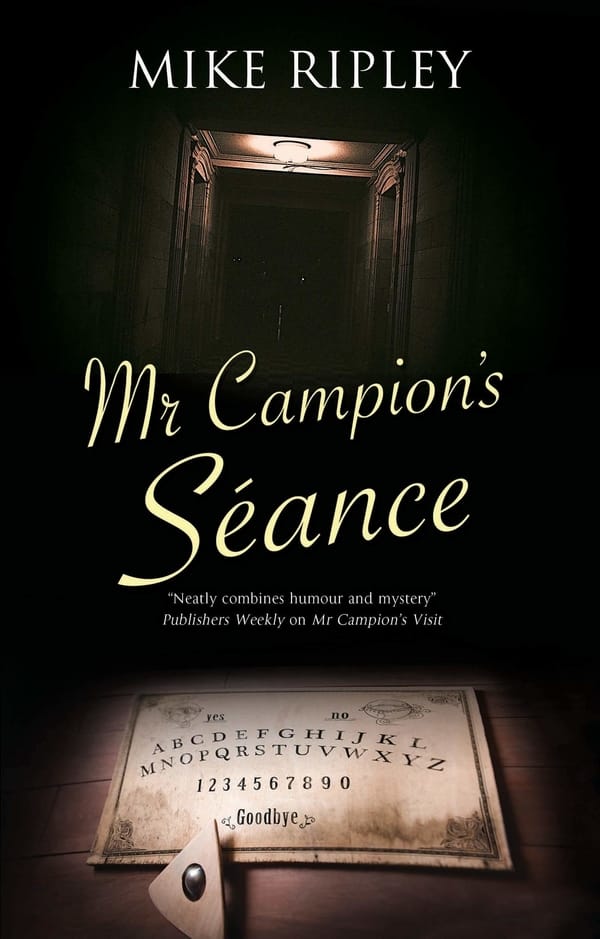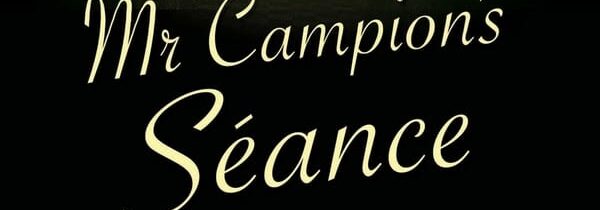MR CAMPION’S SÉANCE by Mike Ripley (Severn House)

Mr Campion’s Séance is the seventh book in Mike Ripley’s marvellous continuance of the Albert Campion novels by Margery Allingham and, in some ways, it is the most ambitious of the series to date.
The book opens in 1940 with Campion meeting the famed Evadne Childe at a police shooting range. Evadne is the author of a highly popular series of mysteries featuring archaeologist, and amateur detective, Rex Troughton and is also one of the War’s first war widows, with her archaeologist husband Edmund being killed at sea in 1939 during a U-boat attack. Campion and her also share the same godmother and they again meet briefly when Campion deposits two wartime lodgers, Belgian soldier refugees, at her country estate near Colchester. The story then moves forward to 1946 when Evadne’s latest bestseller catches the attention of Superintendent Stanislaus Oates. The crime at the heart of the book bears a striking similarity to a recent, real life, unsolved murder at a club in Soho. Although Evadne wrote the book before the murder occurred, she predicts it remarkably accurately and it sets Oates wondering. He asks Campion to investigate the matter, but his efforts are cut short when he is sent on a mission overseas. The effects of the murder linger across the 1950s before finally reaching their violent conclusion in 1962.
Mr Campion’s Séance is a carefully plotted and quite enjoyable murder mystery that proceeds down some unexpected paths. The spreading of the plot over three tumultuous decades gives the story some depth and the mystery writer Evadne Childe is a marvellous creation. It takes a little while for the crux of the story to emerge, but Ripley keeps the reader well entertained during the early parts of the book with amusing comments and interesting reflections on crime writing. While the latter stages deliver good surprises, unexpected deaths and a suspenseful conclusion.
Ripley also delights in seamlessly weaving into his story a plethora of interesting historical snippets and cultural references to give some flesh to the different historical periods covered by the book. He draws heavily on his extensive knowledge of crime and thriller writing across the 1940s, 50s and 60s to place the fictional Evadne Childe’s books in a contemporary context and there are plenty of wry asides and insider jokes about authors, publishers and the book business. Old movies and books are frequently cited, and Ripley seems to take much pleasure in naming one of the least pleasant characters after a well-known, current writer of historical thrillers. Fans of crime fiction from the 1950s and 60s will delight in the comments about Childe’s contemporaries and the art of crime writing, and I particularly liked the reference to “Piccadilly cowboys”.
Underneath the patina of humour there is a solid mystery plot and some real moments of pathos. The pacing may not be to everyone’s taste, but overall Mr Campion’s Séance is an enjoyable read that will be much appreciated by fans, both new and old, of the original Campion stories by Allingham and the more recent ones by Ripley.


Snap! I have this to read. I’m looking forward to it.